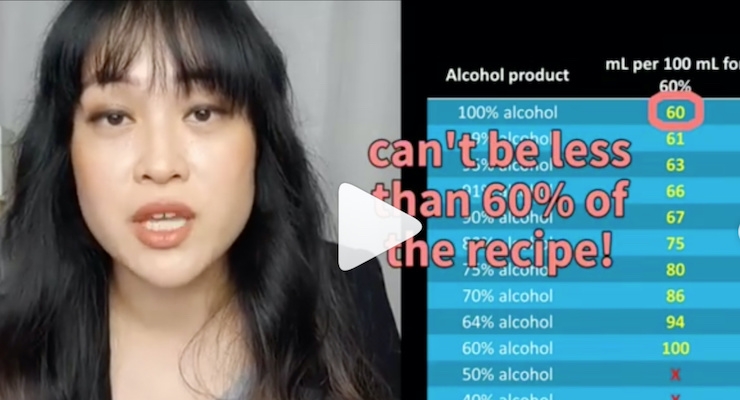Beauty Packaging Staff03.27.20
Experts say soap and water are effective against coronavirus, but alcohol-based hand sanitizers are a necessity for healthcare workers, and others, since they don't require being near a sink. Because they're so convenient and effective, however, hand sanitizers are one of the most in-demand and sought-after products right now during the COVID-19 pandemic.
Hand sanitizer is among the 25 items on a list of supplies that American diplomats are being told to try to obtain from their host countries, CNN reports. Another recent news story says that Amazon warehouse workers are worried for their safety as supplies of hand sanitizer run low.
Beauty companies are responding -- Coty, Estée Lauder, L'Oréal, and Farouk are all producing hand sanitizer it in the U.S., and NY State has bottled its own NYS Clean.
FDA's New Guidances
Initially, the FDA issued the Guidance, a "Policy for Temporary Compounding of Certain Alcohol-Based Hand Sanitizer Products During the Public Health Emergency," which may be useful for companies that have the capability to join the cause.
On March 25, the FDA released a new Guidance for the manufacture of alcohol to incorporate into hand sanitizers. A statement reads: "In response to the demand for alcohol-based hand sanitizers and their active ingredient, alcohol, certain entities that are not currently regulated by the FDA as drug manufacturers have requested guidance on the preparation and distribution of alcohol for incorporation into hand sanitizer products for the public’s use."
The new Guidance is for firms that manufacture alcohol (i.e., ethanol or ethyl alcohol) "for use as the active pharmaceutical ingredient in alcohol-based hand sanitizers for consumer use" -- and for use "as health care personnel hand rubs for the duration of the public health emergency."
FDA-Approved Formulas, Explained
One influencer, blogger, and vlogger on YouTube, Lab Muffin, also known as Michelle Wong, is known for explaining "the science of beauty, simply." She has a recent video explaining that only alcohol-based hand sanitizers are proven effective against coronavirus.
Wong also goes into detail for her followers about why not every formula works, because it must contain over 60% alcohol. She also explains to beauty consumers who are fans of natural and essential-oil-based products why these might not be the best option during a pandemic. Her advice may be helpful for indie brands -- so if your company is thinking about launching a private label hand sanitizer, plug your formula into her Alcohol Content Calculator. (DIY beauty addicts will also find this useful.) And take a look at the World Health Organization's formula requirements.
Why Pump Dispensers Are Useful
Packaging can play a role in a hand sanitizer's effectiveness. Wong advises that for hand sanitizers to work, "You have to use enough to coat your hands, and it has to stay wet for 20 seconds."
In the video below, Wong advises her viewers to pay attention to how much product they're using -- and says that pump dispensers make it easy. She says, "It will often say on the label, use 1-2 pumps." This ensures users will dispense the right amount for the sanitizer to be effective.
Read More
Hand Sanitizer Market Is Surging, Forecasters Say: A look at the latest reports.
Google Searches For Hand Sanitizer Spike: It's one product everyone needs more of during the coronavirus epidemic -- and consumers are searching for ways to make their own.
Mary Kay Manufactures & Donates Hand Sanitizer: The first products off the line will be for donation to those on the front lines addressing the COVID-19 pandemic.












